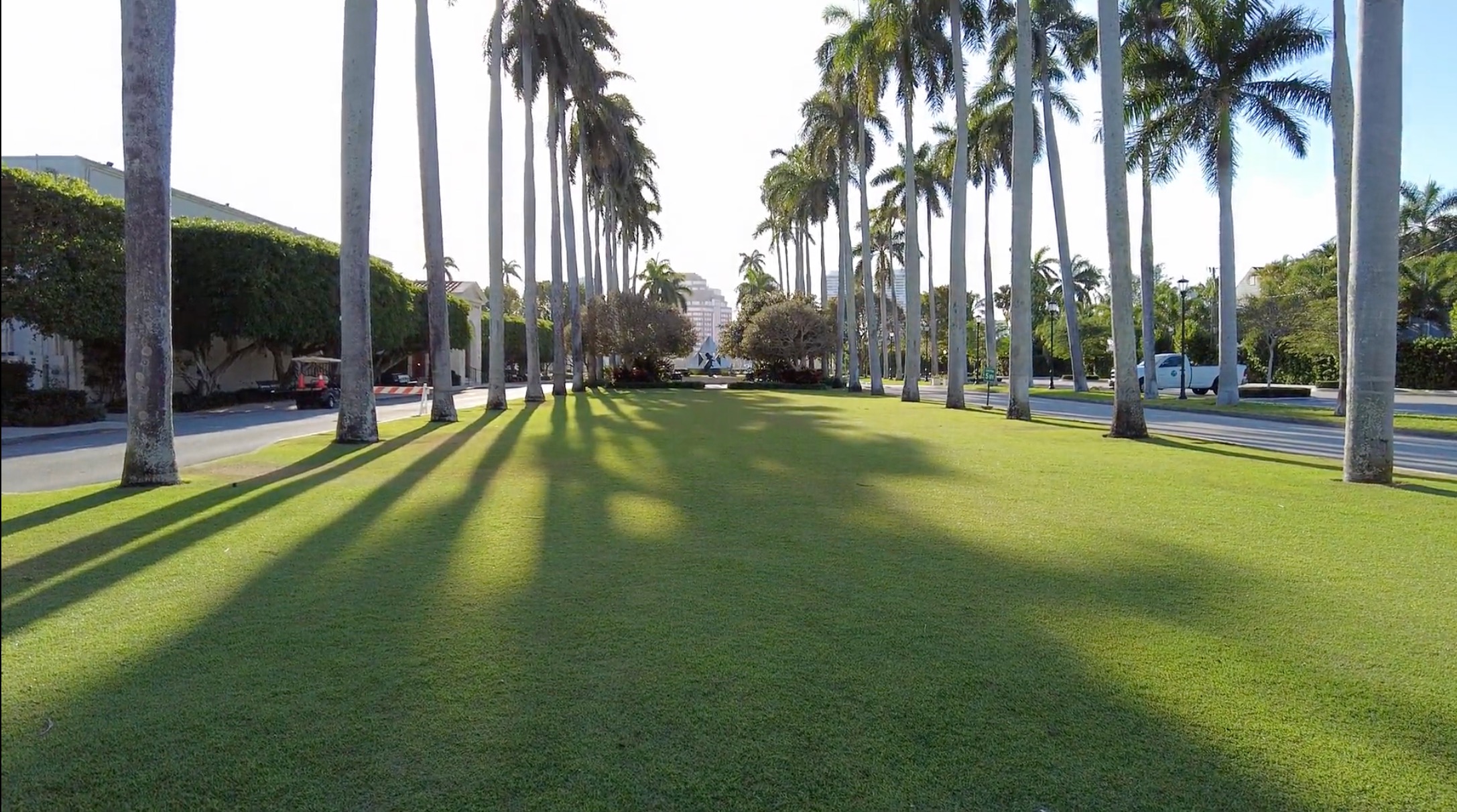Creating and maintaining an aesthetically pleasing commercial landscape is vital for making a favorable first impression and boosting your business’s overall attractiveness.
In this article, we will explore ten indispensable tips to assist you in efficiently managing your commercial landscape’s maintenance.
10 Essential Tips to Help You Effectively Manage Your Commercial Landscape Maintenance

- Develop a comprehensive landscape maintenance plan
Developing a comprehensive landscape maintenance plan is the foundation of effective commercial landscape management.
Begin by thoroughly assessing your landscape’s specific needs, taking into account factors such as plant types, soil conditions, and climate.
Next, create a detailed schedule that outlines regular maintenance tasks, such as mowing, pruning, fertilizing, and irrigation. Be sure to factor in seasonal changes and weather conditions, as these will influence the timing and frequency of certain tasks. By establishing a well-organized maintenance plan, you can ensure that your commercial landscape remains healthy, attractive, and well-maintained throughout the year. - Prioritize lawn care
In Palm Beach, Florida, prioritizing lawn care is essential for maintaining a lush and inviting commercial landscape. The warm, humid climate and sandy soils of the region require a well-planned approach to lawn maintenance.
Establish a regular mowing, edging, and trimming schedule to keep grass looking neat and healthy. Implement proper fertilization practices, using slow-release, nitrogen-rich fertilizers to promote steady growth and minimize nutrient runoff into local waterways.
Weed control is also crucial, as the warm weather can encourage rapid weed growth; use targeted herbicides or organic methods to keep weeds at bay.
Finally, ensure adequate irrigation to prevent drought stress, while also promoting proper drainage to avoid fungal growth and other moisture-related issues.
By prioritizing these key aspects of lawn care, commercial properties in Palm Beach can showcase beautiful, healthy grass year-round. - Prune trees and shrubs regularly
In Palm Beach County’s lush landscapes, regularly pruning trees and shrubs is a critical component of commercial landscape maintenance. The region’s subtropical climate promotes rapid plant growth, making consistent pruning necessary to maintain the health and appearance of trees and shrubs.
Regular pruning helps to remove dead, damaged, or diseased branches, which can improve plant health and prevent the spread of issues to surrounding plants.
Additionally, strategic pruning can promote desired growth patterns and shapes, enhancing the overall aesthetic of the landscape. For example, pruning can help maintain the classic, manicured look of hedges and topiaries that are popular in the area.
When pruning, it’s essential to consider the unique needs of each plant species, as well as the best time of year to prune based on the plant’s growth cycle. By incorporating regular pruning into your commercial landscape maintenance plan, you can ensure that the trees and shrubs on your Palm Beach County property remain healthy, attractive, and well-suited to the local environment. - Keep flower beds vibrant
In the vibrant landscapes of Southeastern Florida, keeping flower beds thriving requires careful plant selection and regular maintenance.
Choose plants that are well-suited to the region’s warm, humid climate and unique soil conditions, such as pentas, angelonia, and salvia. These plants can tolerate the heat and humidity while adding stunning color to your commercial landscape.
To keep your flower beds looking their best, regularly deadhead spent blooms, prune plants to maintain their shape, and fertilize with a balanced, slow-release fertilizer to promote healthy growth. Take advantage of the region’s year-round growing season by rotating annuals seasonally, ensuring a continuous display of color.
Some great annual options for Southeastern Florida include impatiens, begonias, and geraniums for the cooler months and celosia, zinnia, and torenia for the warmer months.
By selecting the right plants and providing them with proper care, you can create eye-catching flower beds that enhance the beauty and appeal of your commercial property. - Maintain hardscape elements
In Palm Beach County’s commercial landscapes, maintaining hardscape elements is just as important as caring for the plants and grass. Regular cleaning and sealing of pavers, concrete, and other surfaces help to preserve their appearance and extend their lifespan in the face of the region’s intense sun and frequent rainfall.
Promptly repairing any cracks, chips, or damages prevents further deterioration and maintains the overall aesthetic of the landscape.
Ensuring proper water management is also crucial, as pooling water can lead to slippery surfaces, erosion, and even damage to the surrounding plants. In the sandy soils of Palm Beach County, it’s essential to design hardscape elements with adequate drainage in mind, using techniques such as sloping surfaces, permeable pavers, and catch basins to direct water flow.
By staying on top of hardscape maintenance, commercial property managers can create safe, attractive, and long-lasting outdoor spaces that complement the area’s lush landscapes. - Implement water conservation strategies
In the Southeastern Florida area, implementing water conservation strategies is essential for maintaining a beautiful and sustainable commercial landscape.
One key strategy is to install efficient irrigation systems equipped with timers and sensors, which can automatically adjust watering schedules based on rainfall and soil moisture levels. This helps to reduce water waste and ensure that plants receive the appropriate amount of water.
Another important approach is to choose drought-tolerant plants and grass varieties that are well-adapted to the region’s climate, such as Bahia grass, Bermuda grass, and Zoysia grass. These species require less water and can maintain their appearance even during dry spells.
Mulching landscape beds is also crucial for water conservation, as it helps to retain moisture in the soil and reduce evaporation. In Southeastern Florida, some of the best mulches include pine bark, cypress, and melaleuca, which are readily available and well-suited to the region’s conditions. These organic mulches break down over time, improving soil structure and fertility.
By implementing these water conservation strategies, commercial property managers in Southeastern Florida can maintain beautiful, healthy landscapes while using good water management best practices and promoting sustainability. - Practice Integrated Pest Management (PMI)
In Palm Beach County, practicing Integrated Pest Management (IPM) is a sustainable and effective approach to controlling pests and diseases in commercial landscapes. IPM involves regularly monitoring the landscape for signs of pest infestations or diseases, such as wilting leaves, discolored foliage, or the presence of insects.
By catching issues early, you can address them before they cause significant damage. When treatment is necessary, IPM prioritizes targeted treatments, such as pruning affected areas or using pest-specific insecticides, rather than relying on broad-spectrum pesticides that can harm beneficial insects and disrupt the ecosystem.
Promoting beneficial insects and natural predators is another key component of IPM. By creating a diverse landscape with various native plants, you can attract predatory insects like ladybugs, lacewings, and parasitic wasps, which help keep pest populations in check.
Additionally, avoiding the use of broad-spectrum pesticides helps to protect these natural predators, allowing them to thrive and maintain balance in the landscape. By implementing IPM strategies, commercial property managers can effectively manage pests and diseases while minimizing environmental impact and promoting a healthy, sustainable landscape. - Focus on soil health
Focusing on soil health is crucial for maintaining thriving commercial landscapes in Palm Beach County’s coastal areas. The region’s sandy soils are prone to nutrient deficiencies and erosion, making it essential to take proactive steps to improve soil quality.
Conducting regular soil tests can help identify specific nutrient deficiencies, allowing you to tailor your fertilization and amendment strategies accordingly.
Amending soil with organic matter, such as compost or aged manure, can improve soil structure, increase water retention, and provide a slow-release source of nutrients.
Additionally, incorporating necessary nutrients through targeted fertilization can help ensure that plants have the resources they need to grow and thrive. Implementing erosion control measures is essential in areas prone to erosion, particularly along the coastline or on sloped landscapes. This may include using geotextiles, planting groundcovers, or installing retaining walls to stabilize the soil and prevent washout during heavy rainfall or storm events.
By prioritizing soil health and taking steps to address the unique challenges of Palm Beach County’s soils, commercial property managers can create resilient, vibrant landscapes that showcase the region’s natural beauty. - Adapt to seasonal changes
Adapting to seasonal changes is an important aspect of commercial landscape maintenance in southeastern Florida, which enjoys a subtropical climate with relatively mild winters.
While the seasonal changes are not as pronounced as in other parts of the country, it’s still essential to plan for spring clean-up and planting, as well as fall clean-up and winterization.
In the spring, focus on rejuvenating the landscape by pruning back any damaged or overgrown plants, refreshing mulch, and planting colorful annuals to celebrate the season.
As fall approaches, prepare the landscape for the upcoming dry season by pruning trees and shrubs, removing any debris, and adjusting irrigation schedules to account for the changing weather patterns.
While southeastern Florida may not experience a traditional winter, it’s still important to protect sensitive plants from occasional cold snaps and to monitor irrigation needs during the drier months.
Finally, don’t forget to incorporate seasonal decorations and lighting to add a festive touch to your commercial landscape. By adapting your maintenance practices to the seasonal changes unique to southeastern Florida, you can ensure that your landscape remains healthy, vibrant, and inviting year-round. - Embrace sustainable practices
In Palm Beach County, embracing sustainable practices is becoming increasingly important for commercial landscape maintenance. One key strategy is incorporating native and eco-friendly plant species into the landscape.
Native plants, such as sea grape, gumbo limbo, and saw palmetto, are well-adapted to the region’s climate and soil conditions, requiring less water, fertilizer, and pest control compared to non-native species.
Additionally, using eco-friendly plants, like slow-growing, drought-tolerant groundcovers, can help reduce maintenance needs and minimize environmental impact.
Another sustainable practice is to compost green waste, such as grass clippings and pruned plant material, and use the resulting compost as a natural fertilizer. This not only reduces waste but also improves soil health and fertility.
When fertilization is necessary, opt for organic fertilizers that release nutrients slowly, minimizing runoff and pollution.
Finally, reducing reliance on chemical pesticides and herbicides can promote biodiversity by allowing beneficial insects and native plant species to thrive. Instead, focus on creating a balanced ecosystem that encourages natural landscape pest control and resilience.
By embracing these sustainable practices, commercial property managers in Palm Beach County can create beautiful, low-maintenance landscapes that prioritize environmental stewardship and contribute to the region’s unique ecological heritage.
By following these 10 essential tips, you can ensure that your commercial landscape remains healthy, attractive, and well-maintained throughout the year. A well-maintained landscape not only enhances the aesthetic appeal of your property but also contributes to a positive brand image and improved customer experiences.

